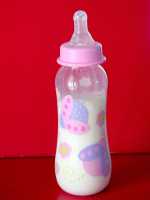Allergies, Author Interviews, JAMA, Nutrition, Pediatrics / 22.10.2019
Avoiding Cow’s Milk Formula at Birth May Reduce Food Allergies
MedicalResearch.com Interview with:
Mitsuyoshi Urashima MD, PhD, MPH
Professor of Molecular Epidemiology
Jikei University School of Medicine
Tokyo, JAPAN
MedicalResearch.com: What is the background for this study?
Response: IgE-mediated food allergy is becoming a global concern, because its prevalence and severity are worsening. Many Japanese maternity wards encourage breastfeeding, but allow mothers or nurses to supplement breastfeeding with cow’s milk formula, e.g., approximately 6 to 10 hours after birth or even earlier, based on maternal preferences, but not based on clinical evidence. However, more than 20 to 30 years ago, sugar water was given instead of cow’s milk formula supplement at birth. Thus, we hypothesized that early exposure to cow’s milk formula at birth is, at least in part, associated with the recent increase in children with food allergy.
Therefore, a randomized clinical trial, named ABC (Atopy induced by Breast feeding or Cow's milk formula), was conducted to assess whether the risk of cow’s milk formula sensitization and food allergy is decreased by either avoiding or supplementing cow’s milk formula at birth. Immediately after birth, newborns were randomly assigned (1:1 ratio) to either breastfeeding with or without amino acid-based elemental formula for at least the first 3 days of life (breastfeeding ± elemental formula), or breastfeeding supplemented with cow’s milk formula (≥5 mL/day) from the first day of life to 5 months of age (breastfeeding + cow's milk formula).
(more…)


